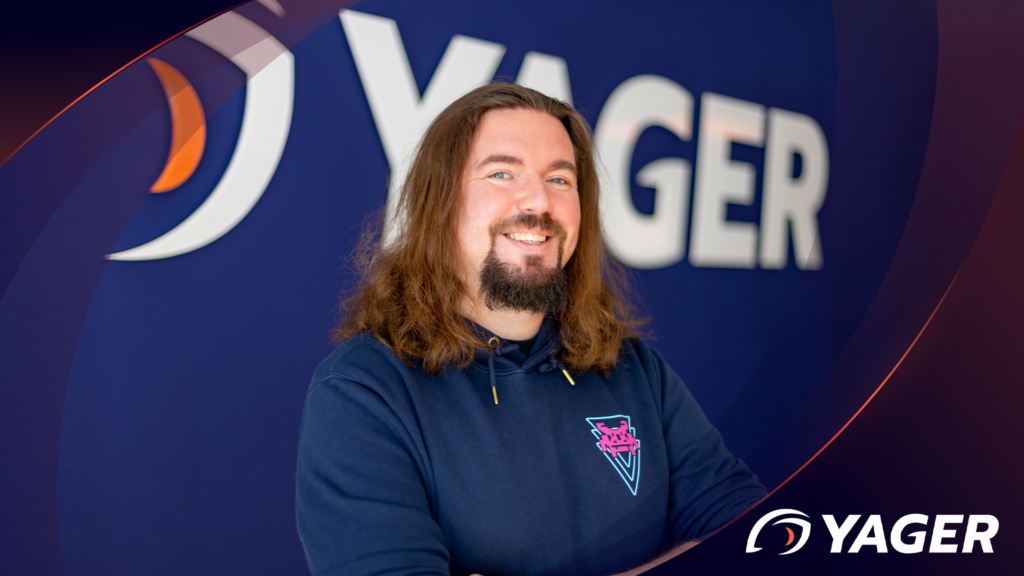Today, our Community & Player Support Lead, Floh will talk about things he learned being an avid gamer, with the focus on leadership skills and how they came in handy while working for YAGER.
Hello everyone, Floh here again. Today I want to talk about two examples from my gaming youth, which in hindsight helped me grow and hone some of the skills I use professionally every day. I will take you back to my school days and talk about the original DotA (not DotA 2) and World of Warcraft.
Why do I want to do this? Well, I want to showcase some of the things that we do in our free time and hobbies, that can influence and shape us in more ways than one, how we can use and rely on our experiences, and trust in our ability to adapt to new situations.
What did I learn in DotA?
Defense of the Ancients or DotA, a mod and so called “funmap” for Warcraft 3 which became the main catalyst of the MOBA genre, was a big part of my gaming life during my final years at school when I played it competitively. While I was never the best or had the ambition to be, I still managed to leave an impact on the people I played with.
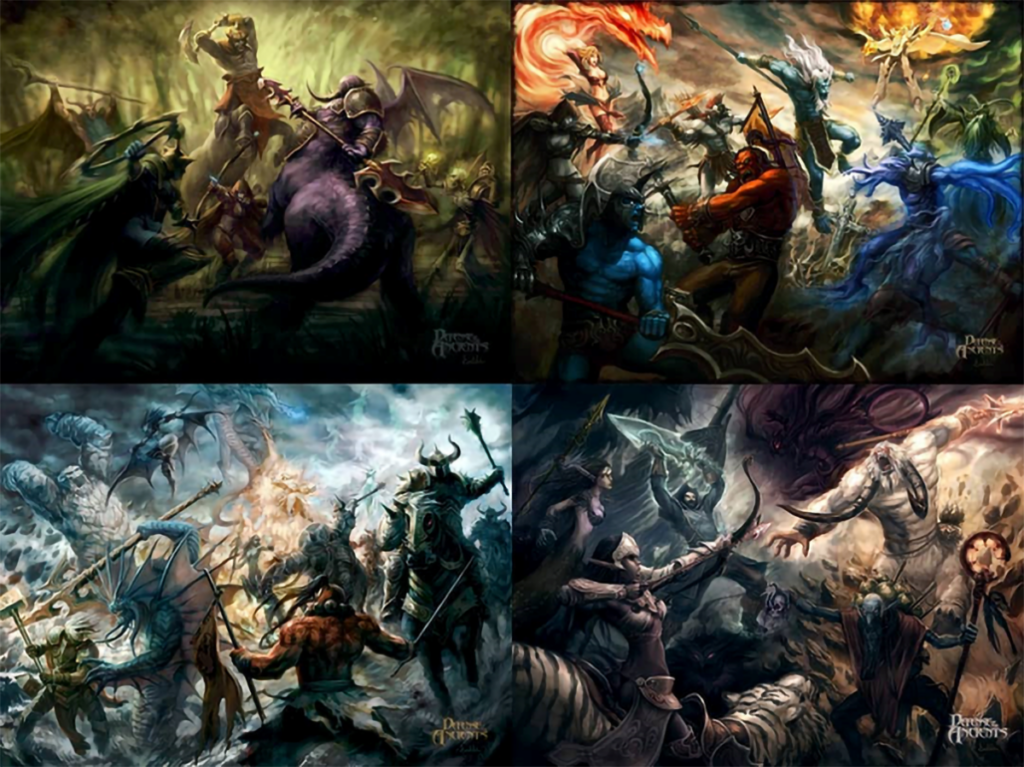
Art by Kunkka – The loading screen designer from back then
Managing People and Tasks Part I
Due to my experience as a class representative in school, it was relatively easy for me to talk to people and to listen to their needs and worries. This led to me creating a new team and handling most of the scheduling as well catering towards strengths and needs of the different team members.
Every player on the team was happy to be a part of it. Although some were destined for greater things, they always looked back fondly on this time. It was a functioning unit where everyone was able to contribute and we never ran into the problem of having to forfeit a match, because we were not enough players.
The power of one-on-one meetings
Without having deeper knowledge of the concept back then, it made sense to meet with each player on a regular basis to listen to their needs and worries, and to listen to what they thought could be improved. This way I could ensure that every player felt seen and heard, and considered themselves a valuable part of the team.
Listening is and always has been a powerful tool. If you transfer that over to the one-on-one meetings you hold with your team members, it becomes an essential skill.
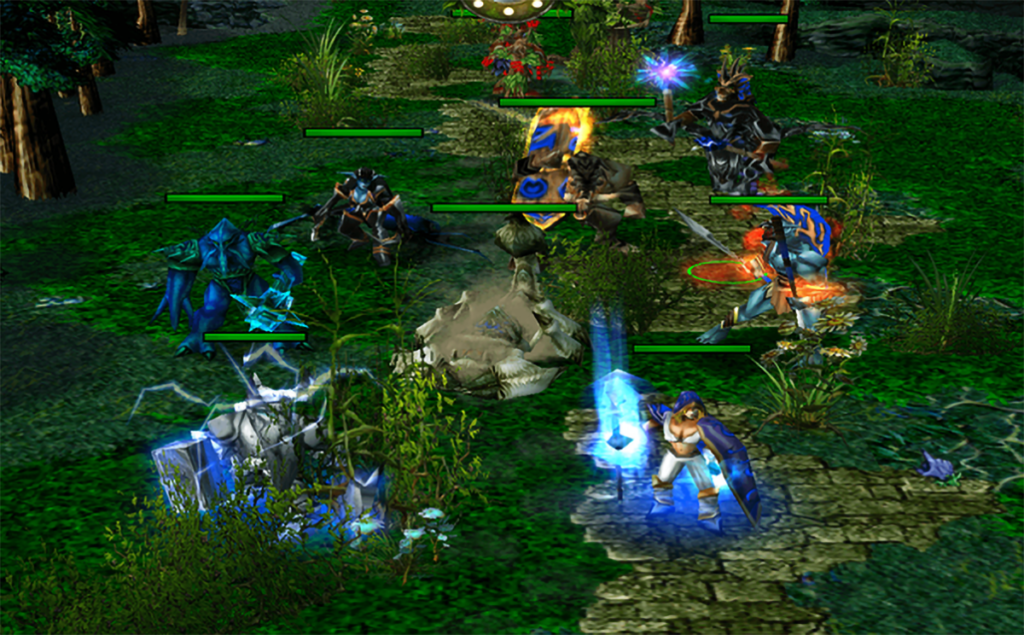
DotA Screenshot (Warcraft 3 by Blizzard Entertainment)
Thinking outside the box
We were a rag tag band of players and yet we managed to make a name for ourselves and get signed by a bigger organization. I got paid for playing and managing the team while still being in school, which was great. However, this was only achieved, because we were able to think outside the box.
We looked at teams from other regions that played the game to learn from and implement their tactics and to bring them to our region. We did not shy away from speaking with bigger teams and players for feedback. Neither were we afraid to challenge the status quo when we realized that certain structures in the German scene would need to change.
You always learn and if you are eager to improve and adapt, you can rise above the rest.
What did I learn in World of Warcraft?
I started playing World of Warcraft shortly after it was released in Germany; while not getting sucked in immediately I eventually found a new home in Azeroth and to this day it’s an on-and-off relationship. Whenever I return to the game it feels like “coming home” in a sense. Back in the vanilla days of WoW I was leading a small guild, but we banded together with some mid-sized guilds to form a bigger raid alliance. Raids in vanilla were either 25 or 40 people!
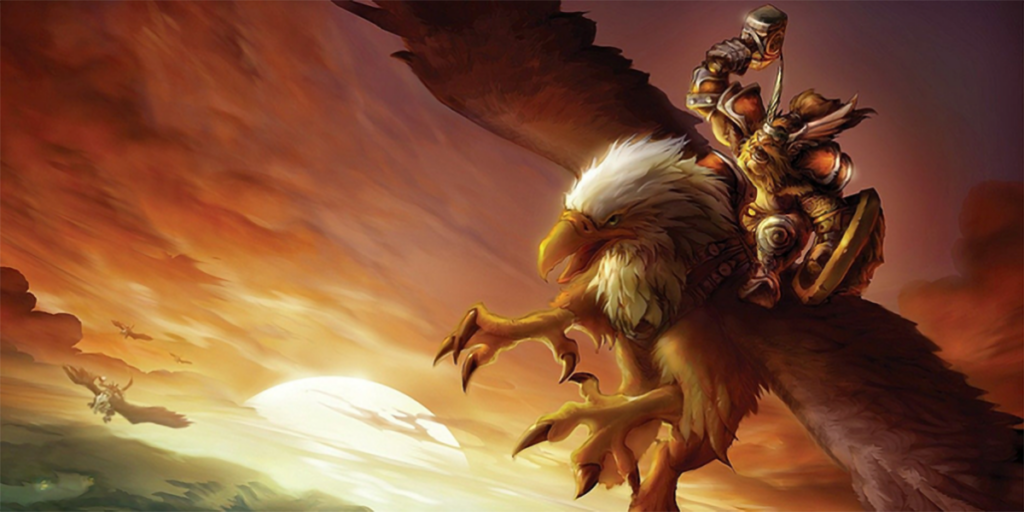
Art by Blizzard Entertainment
Managing People and Tasks Part II
As this alliance was roughly 350 people strong, spread across several guilds, we of course had to have leadership meetings to plan and schedule our next adventures. You always had to keep track of questions like: How many positions do we have open on day X? Which class do we still need for Y? How can we make sure we have a good rotation, and nobody feels left behind?
To make sure that everyone who was interested in being a part of the raids, was taken care of, all these tasks required good planning and thinking ahead.
For that, communication was key. You had to talk to your own guild, other guild leaders and of course the members of their guilds, even if at times they would raise criticism of leadership or your members, which you then had to take into consideration and address.
While being stressful, this taught me to work closely with other likeminded people and align on the common goal of “making something awesome”. We didn’t make awesome games at that time, like we do now at YAGER, but we wanted to make sure that everyone had an awesome time.
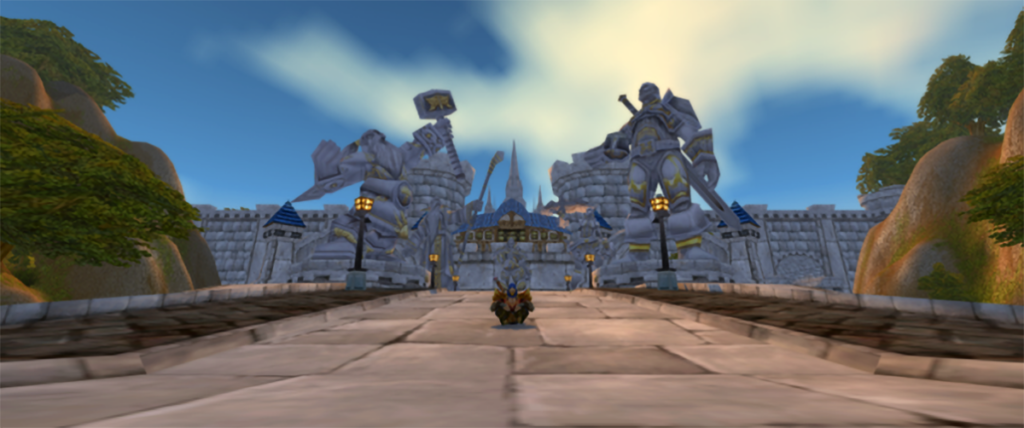
World of Warcraft screenshot (by Blizzard Entertainment)
Do not assume, share knowledge, be respectful
We often assume that certain things are common knowledge when we work with others. It can be easy and convenient, but we should not be surprised if this is not the case. Let me show you one example of why it is always good to share knowledge and to check if all things are clear and understandable.
Back in the days of vanilla World of Warcraft we had a Retribution Paladin in our raid group, it is a class specialization that is focused on damage but can also dish out some healing and yes, he was a good damage dealer. We arrived at a roadblock and were wondering why we could not beat a certain boss, even though we should have had enough healing overall.
So, we checked in with our Paladin and asked: “Hey, did you use your heals as well?”
We were quite baffled when he replied “I do not have any heals, I am a damage spec.”
Since we didn’t want to put him on blast in front of everyone, we quickly pulled him to the side, went through his skills with him, made sure that he understood that although he was a damage dealer, he still had access to some of the healing abilities of a paladin and the team relied on those. Low and behold, when we tried the same fight again, we managed to immediately beat the boss. While our Paladin ended up doing slightly less damage, his overall contribution to the success of the group was critical, thanks to his heals.
The morale of the story for me was the following: Always make sure that knowledge sharing is an important part of your leadership and never stop learning as a leader.
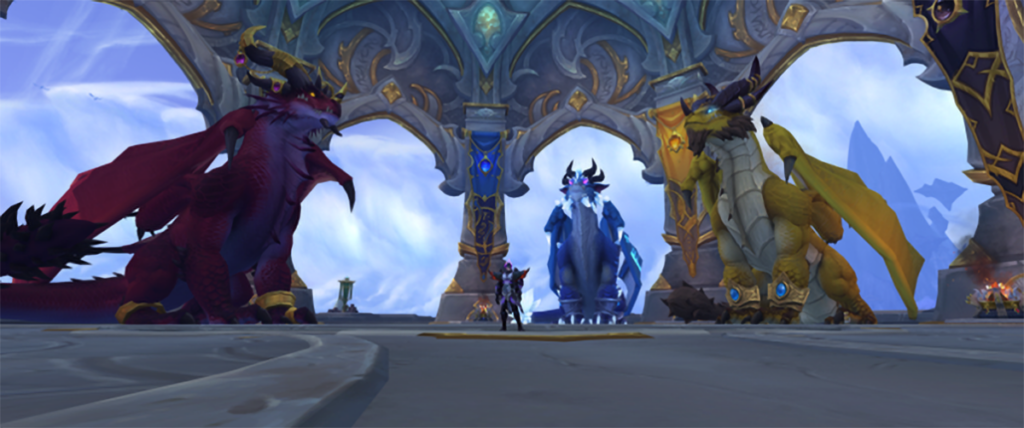
World of Warcraft screenshot (by Blizzard Entertainment)
Final Words
As you can see, skills that you might not directly associate with your work or leadership might have helped you to become a better leader or already taught you lessons that you could have picked up later.
Be it team-based video games that require group efforts and coordination or things like tabletop gaming & RPGs where you learn things that can be helpful for public speaking. Your hobbies and interests can shape you and can support you in your journey throughout your career.

